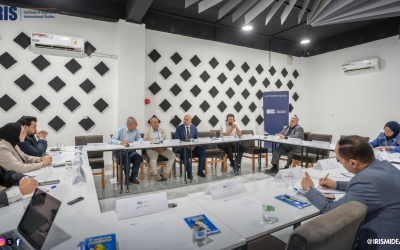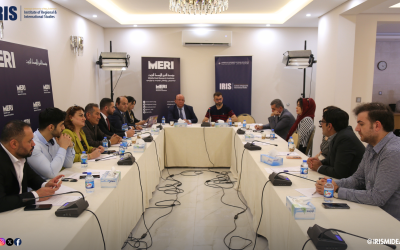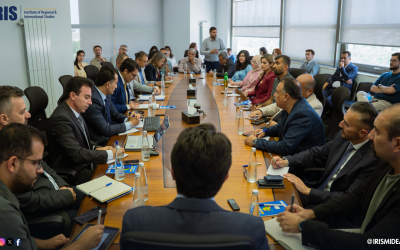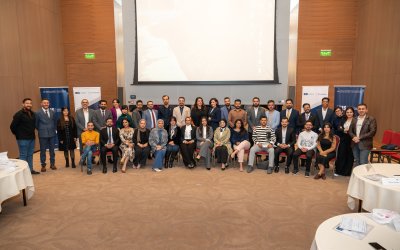On Tuesday, October 19, IRIS hosted Dr. Peter Bartu for a discussion on the United Nations, Peacebuilding, and the Middle East. Dr. Bartu's discussion focused on the history of intervention and grand strategy of Russia, China, and the US in the Middle East, as well as the current uncertainty around US foreign policy in the Middle East. He spoke broadly about the differences between the historical foreign policy objectives of the US and Russia, the latter of whom he noted had developed a more coherent long-term strategy than was evident in current US foreign policy. He discussed the current interests of Russia and China in the region, which included the pursuit of economic and natural resources such as the development of natural gas pipelines. Chinese and Russian interests, he noted, contrasted those of the US, whose current foreign policy trajectory he claimed the international community perceived as incoherent. The talk involved an active discussion with students, who shared their opinions on the current US administration’s policy in the Middle East, KRG domestic politics, and regional relations between Iraq and its neighbors.
Speaker Bio:
Dr. Bartu is an expert on political transitions in the Middle East, the Israeli-Palestinian conflict and the Gulf States. In 2011 he was a member of the UN’s stand-by mediation team and worked in Benghazi and Tripoli during the Libyan revolution. In 2008-2009 he led a United Nations team that produced a seminal report on the disputed internal boundaries between Iraq and the KRG. From 2001-2003 he was a political adviser to the UN Special Coordinator for the Middle East Peace Process, based in Jerusalem.





